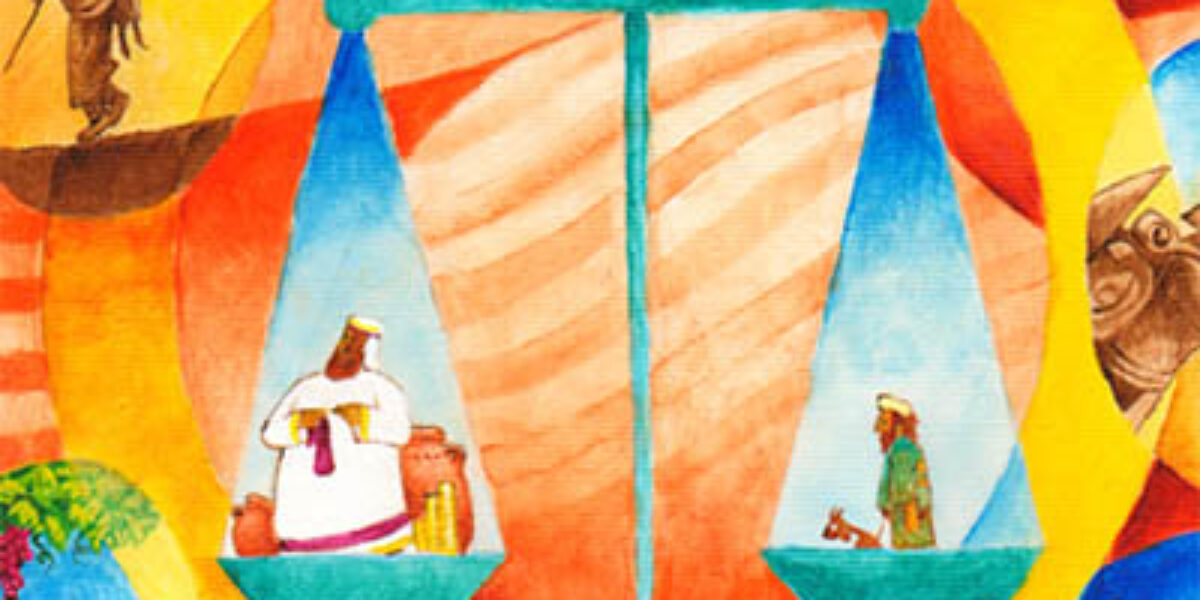Re’eh – Deut. 11:26-16:17 (Aug. 6/7)

As the Torah Turns
Rabbi Lader’s Weekly D’var Torah
Re’eh – Deut. 11:26-16:17 (Aug. 6/7)
Our Torah portion this week is Re’eh – Deut. 11:26-16:17. Moses continues to set the parameters for creating a supportive social structure, as the Israelites prepare to enter the Promised Land. Chapter 15 paints the idealistic picture that “[T]here will be no needy among you… if only you heed the Eternal your God and take care to keep all this Instruction that I enjoin upon you this day…” (Deut. 15:4-5) Then, verses 7-8 come to a more realistic vision and action to take: “If, however, there is a needy person among you… in any of your settlements… do not harden your heart and shut your hand against your needy kin. Rather you must open your hand and lend him sufficient for whatever he needs.” (15:7-8) In order to give people a sufficient amount for what they need, one must have an idea, some level of understanding of what they are going through. Understanding implies active listening, taking seriously what people are sharing and experiencing. In verse 8, the Hebrew that is translated as “…You must open your hand to him…” is a doubling of the word for open: Ki fato-ach tiftach et yadcha lo. When there is a doubling of a Hebrew word in the text, this implies emphasis. Rashi (1040-1105) teaches that the doubling of the instruction to do this implies doing this many times. By doing this many times, the person develops the midot (character traits) of lev patuach (open heartedness) and n’divut (generosity). In other words, the opening of one’s hand can lead to the opening of one’s heart — and/or perhaps vis versa. The Jewish ideals of giving to those in need – tzedakah – were summarized and taught by Rabbi Moses Maimonides (RaMBaM) – 1138-1204.
Maimonides believed that there are different ways one can give to those in need; it is like a ladder with eight rungs, from bottom to top. Each step you climb brings you to a higher level of giving:
- The person who gives reluctantly and with regret.
- The person who gives graciously, but less than one should.
- The person who gives what one should, but only after being asked.
- The person who gives before being asked.
- The person who gives without knowing to whom they give, although the recipient knows the identity of the donor.
- The person who gives without making their identity known.
- The person who gives without knowing to whom they give. The recipient does not know the identity of the donor.
- The person who helps another to become self-supporting by a gift or a loan or by finding employment for the recipient.
Note that there is no rung for those who do not give. The giving of tzedakah is a “given;” how you choose to do so is up to you.

From Previous Weeks

Ekev – Deut. 7:12-11:25 (Jul. 29/30)
Crowds are moved by great speakers, but lives are changed by great listeners…”

Va’etchanan – Deut. 3:23-7:11 (Jul. 23/24)
Attaching ourselves to God does not blur our individual identity, it sharpens it.

Devarim – Deuteronomy – Deut. 1:1-3:22 (Jul. 16/17)
What does it mean to be wise? Is it insight? Good judgement? Common sense? An orderly and balanced sense?

Matot/Massei – Numbers 30:2 – 36:13 (Jul. 9/10)
In essence, the Torah is saying that there is inherent value to journeys, to life experiences.

